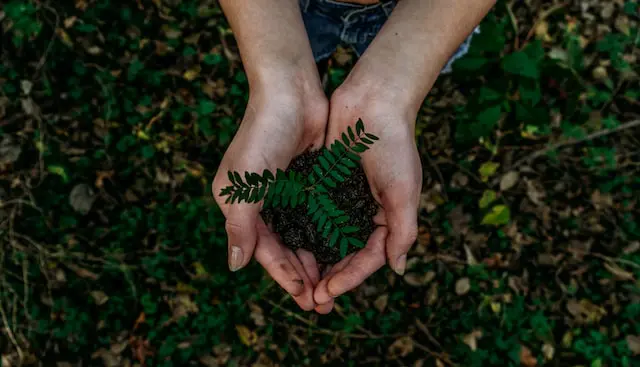5 tips for becoming an environmental champion
Posted on: 17 November, 2022
Blistering heat, disastrous floods, melting glaciers and rising sea levels, on top of more frequent and intense droughts, are just some of the catastrophic effects of climate change. We all have a part to play in the climate catastrophe, but sometimes it can be overwhelming to know where to begin. Jessica Gordon-Calvert, sustainability education and engagement officer at UCEM, shares her top 5 tips for gaining some agency and becoming an environmental champion.


Be in the know
Whether this is keeping up to date on developments within your discipline, learning about the commitments of your local MP or political party, catching up on the news or understanding the ethical and sustainability credentials of a company, it’s important to be informed. It gives us – the consumer, the individual and professional – the power of knowledge to challenge, influence and make changes in where we shop and what we buy.

Be a challenger and a champion
There are plenty of ways to challenge and champion for change so find something you’re comfortable with and go with that. Examples of this could be in the home, in the workplace, in the supermarket or on social media – we’re all part of making a change and sometimes we just need that little push or idea from someone to make a difference. Similarly, it’s just as important to praise and champion things that are working well or if improvements have been made.
It’s important to shar your thoughts by writing letters to your local MP, as the government have the ultimate control over the changes that need to be made.
As a consumer, you can ensure you’re buying from ethical and sustainable brands, but since companies play a significant role in climate change, you can also sign petitions and pose questions to such companies on social media. There are many templates available online to help you with things like this. If this is something you’re interested in doing, try to be constructive and solution-based where possible. Challenge should not equate to rudeness or aggression.

Try something new
Sometimes it can be difficult to find the time or headspace to try something new as it can go against your regular routine, but it doesn’t always need to be big, drastic changes. For example, if you grab a ‘cuppa’ on the go, you could try having it with a dairy milk-alternative, or bring your sustainable coffee cup with you.
Something else you can try at home is introducing meat-free and occasionally plant-based meals into your diet each week and gradually experiment with different flavours and products. It’s best to start off small and grow from there.
 Go out and vote
Go out and vote
If you’re a student, consider applying to be a student representative or student ambassador when a post becomes available and champion sustainability. If that’s not something for you, make sure to engage with the students who are reps and ambassadors so that they can voice your thoughts and ideas to staff from across UCEM.
Outside of the university, (perhaps more importantly) go out and vote. Your voice in local and general elections matters greatly. Get to know who is standing in the elections, which party they’re running for and what their stances are in terms of protecting our people and planet.
 Show kindness and compassion
Show kindness and compassion
The world has been a turbulent place since the COVID-19 pandemic, which has only exacerbated the challenges that our planet and people face. It’s important to remember that not everyone is in the same boat. Not everyone is able to take individual climate and social justice actions.
We need to show kindness and compassion to our neighbours and to the nature around us. If we, as a collective, can offer support, not judgement, for the small steps those around you do take, then we have a strong chance in breaking down barriers and increasing the likelihood of a more sustainable future.
Learn more: The reality of eco-anxiety and how to confront it





